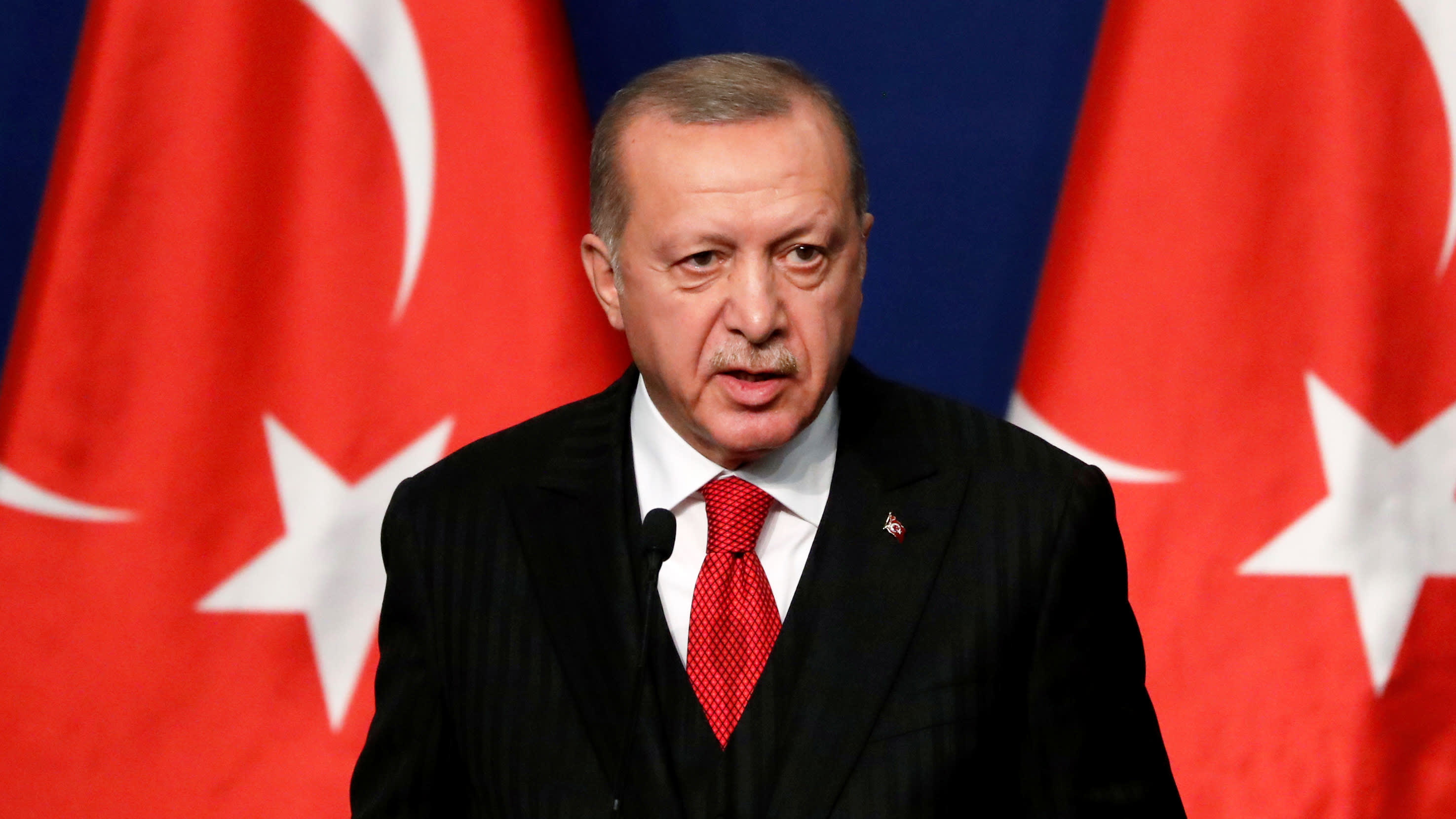
Turkish President Recep Tayyip Erdogan attends a news conference in Budapest, Hungary, November 7, 2019.
Bernadett Szabo | Reuters
Turkey’s lira dropped to another record low of 12.49 to the dollar on Tuesday, a level once unfathomable and well past what was just last week deemed the “psychological” barrier of 11 to the dollar.
“Insane where the lira is, but it’s a reflection of the insane monetary policy settings Turkey is currently operating under,” Tim Ash, senior emerging markets strategist at Bluebay Asset Management, said in a note in response to the news.
The lira was trading at 12.168 to the greenback at 1 p.m. local time on Tuesday.
The sell-off was triggered after Turkish President Recep Tayyip Erdogan defended his central bank’s continued contentious interest rate cuts amid rising double-digit inflation. He labeled the move as part of an “economic war of independence,” rejecting calls from investors and analysts to change course.
Inflation in Turkey is now near 20%, meaning basic goods for Turks — a population of roughly 85 million — have soared in price and their local currency salaries are severely devalued. The lira has lost nearly 40% of its value this year and 20% since the start of last week alone, according to Reuters.
For perspective, at this time in 2019, the lira was trading at roughly 5.6 to the dollar. And that was already making news, as it was a dramatic drop in value from the mid-2017 level of 3.5 to the dollar.
‘Irrational experiment’
Turkey’s currency has been in a downward slide since early 2018, thanks to a combination of geopolitical tensions with the West, current account deficits, shrinking currency reserves, and mounting debt — but most importantly, a refusal to raise interest rates to cool inflation.
Erdogan has long described interest rates as “the enemy,” rejecting economic orthodoxy to insist that raising rates actually worsens inflation, rather than the other way around.
Investors fear the lack of independence of Turkey’s central bank, whose monetary policies are seen as being largely controlled by Erdogan. He has fired three central bank chiefs in roughly two years over policy differences.
Semih Tumen, a former central bank deputy governor who Erdogan dismissed in October, sharply criticized the president’s moves.
“We need to abandon this irrational experiment, which has no chance of success, and return to quality policies that will protect the value of the Turkish lira and protect the welfare of the Turkish people,” Tumen wrote on Twitter, according to a translation.
The latest sharp downturn began last Thursday when the central bank cut rates by 100 basis points to 15%. It’s cut rates by 400 basis points since September alone.
According to ratings agency Fitch, in August 57% of Turkey’s central government debt was foreign currency linked or denominated, meaning paying that debt becomes more painful as the lira continues to drop in value.
“We are seeing a perverse economic experiment of what happens when a central bank has effectively no monetary policy,” Ash said.
“Erdogan has taken away the ability of the CBRT (Central Bank of Turkey) to hike policy rates.”




